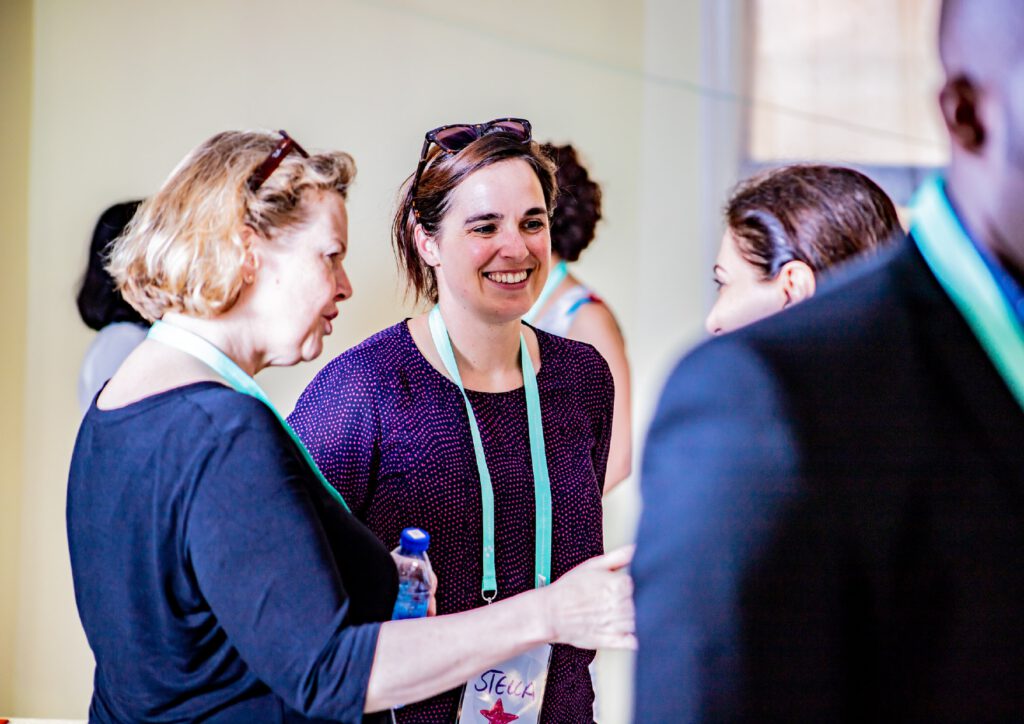Blog
The Story of GDL’s Strategy Development
by Marieke de Wal and Stella Pfisterer
(GDL Knowledge Partner)
In the summer of 2019, in warm and colourful Accra, Ghana, a group of GDL members and representatives of the GDL Secretariat and the GDL partner institutions meet for the first time to work on a new strategy. The workshop starts with a circle conversation about the value of GDL. Different points of view are discussed, varying from the personal connections members were able to make, the interesting other perspectives that are brought to the table, the chance to exchange challenges and opportunities. Then they are asked to think of a metaphor: which image or story best reflects the meaning of GDL?
One of the participants starts talking about a journey, a search for the unknown: “it is not about where GDL is going but more about which way to travel. It is like building the boat while sailing.”
A challenging assignment
GDL wanted to take stock and decide on its future direction. While members and partners experience a great drive and commitment to be part of the GDL community, there were different perceptions on how far, and at what level, GDL’s activities achieve tangible and measurable impact. The five-year anniversary of GDL provided the right moment to reflect on what GDL has achieved so far and what its future goals should be. The assignment was challenging: GDL’s future strategy must be supported and owned by its members. At the same time, it should leave enough space for new members to co-shape the GDL further in the years to come. A group of selected GDL members, facilitated by the Partnerships Resource Centre, worked on it for more than a year.
A co-created strategy
Formulating the strategy for an experimental platform such as GDL requires a tailor-made approach. It was determined by three interrelated key aspects that characterise GDL.
GDL is a member-driven platform. In other words, GDL leans on a self-managed network in which members are responsible for delivering, supported by a Secretariat but without the usual managerial supervision or accountability mechanisms. On the one hand, this allows the strategy development freedom and creativity. On the other hand, the lack of clear guidelines can feel unfamiliar and uncomfortable. The most important reference point was the members. Therefore, the strategy approach required various mechanisms for involving members throughout the process. Ultimately, the strategy should be owned by the GDL members.
GDL is characterised by diversity of ideas and approaches due to its wide variety of members. With more than 200 members in 2020 – some more active than others – and some 40 new members joining GDL every year, this issue was a key challenge for the GDL strategy process. Feedback loops by members and partners were integrated into the strategy process. This required building on each other’s ideas instead of pushing own ideas and preferences. And an important element for decision-making was consent. This means that, while members may not fully agree with a decision that has been made, they can live with it. But it is important that members had the possibility to contribute their ideas and opinions, also later on in the implementation of the strategy.
GDL develops new formats and processes for a more inclusive diplomacy. It is not known how exactly this will look in five years from now, or how diplomacy and the notion of inclusivity will evolve during this period. GDL is therefore not a project with clearly defined outcomes and indicators that can easily measure and attribute the impact of its activities. It goes beyond well-known strategy formats. Above all, it requires courage to work with the unknown. It also requires the members’ confidence that the strategy group will work on their behalf.
Want to learn more? You can find the developed strategy “GDL 2025: Diplomacy 4.0” here.
About the authors:
Marieke de Wal and Stella Pfisterer from the Partnerships Resource Centre of the Erasmus University Rotterdam have vast experiences in the field of cross-sector partnerships and research, and continuously support the GDL as Knowledge Partners in the process of developing its new future strategy including the vision of Diplomacy 4.0.
Published on May 28, 2020.
Photo credit: Jean-Baptiste Hounsou
